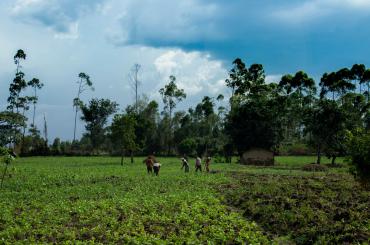
Uganda
-

Preschool subsidies and cash transfers have long-term health benefits for children
Subsidised access to full-day preschools in Uganda had long-term positive effects on children’s anthropometrics but not their learning outcomes. Cash transfers of a similar value as the preschool subsidy had a similar impact.
-

How supervisors nurture talent in organisations
Supervisors can nurture talent within organisations by passing on tacit production knowledge that improves workers’ performance. Evidence from Uganda shows that investments in supervisors as coaches can be a cost-effective way to boost worker product...
-

Inspiring collective action to improve urban air quality in Uganda
Social competitions between neighbourhoods galvanise leadership and inspire collective action to reduce informal waste burning in urban Uganda
-

Can financial redistribution shape attitudes toward refugees?
Policy changes that raise aggregate welfare, but whose benefits are unevenly distributed, are often politically unfeasible. Politicians may recognise the overall gains from refugee integration, for example, but block visas or permits due to local peo...
-

How are manufacturing firms organised in Uganda?
Even large manufacturing firms in Uganda resemble groups of self-employed workers, which limits the gains to scaling these firms
-

Social structure and financial ties in East Africa
Variation in social structure shapes the formation of financial ties and the spillover effects of public policy in East Africa
-

Do NGOs undermine government capacity? Evidence from health services in Uganda
NGO provision of health services in rural Uganda either complemented or undermined government capacity, depending on the supply of skilled labour
-

Does empowering women to communicate at home improve child health outcomes?
Adding communication skills training to health classes for mothers in Uganda increased women’s voice in household decisions but not sufficiently to generate transformative impacts on most child health outcomes
-

Educating children in emergencies: Global evidence from five randomised trials
Education emergencies require resilient solutions: A cheap phone tutoring programme can be highly effective across contexts, emergency types, and implementer profiles, pointing to its potential scalability